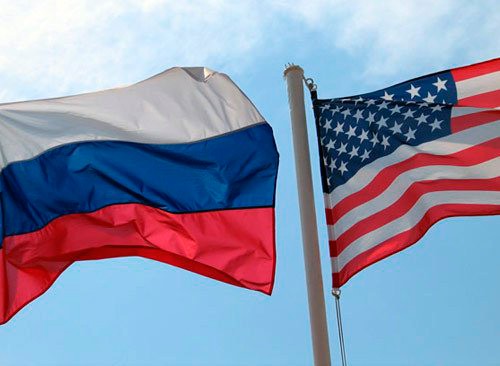
The Future of US-Russia Relations: Systemic Fate or Determined by Personality?
By Catherine Katz, ASP Adjunct Fellow
At the core of international relations theory is a debate that asks whether geopolitical relationships and events are predetermined given a set of systemic constraints that countries inherently face, or are they shaped by the individuals in power, whose personalities and proclivities mold the world around them? If Franklin Roosevelt had died before the 1945 Yalta Conference rather than just after, and Harry Truman had been the American president, would the peace agreements the Americans and British made with Stalin have been different, or would the world have inevitably plunged into a multi-decade Cold War?
The effect of personality on international relations has featured extensively in recent weeks, particularly regarding the future of US-Russia relations. Both countries are now led by individuals whose careers have been propelled by their own carefully crafted public personas, and who appear to make decisions based on personal inclinations, rather than broad-based advisory analysis. Even the personal impact of the two leaders’ deputies has been heavily scrutinized, particularly in the wake of General Flynn’s resignation on the grounds that he had illicitly discussed sanctions with the Russian Ambassador before President Trump took office.
Scholars and the media increasingly ask the counterfactual question, how might present relations with Russia have differed had the Presidential election resulted in a different outcome?
Some geopolitical analysts like George Friedman would say, hardly at all. Friedman, the founder of Stratfor Global Intelligence and Geopolitical Futures, has built his companies entirely on the philosophy that analysts can accurately predict future geopolitical activity based on systemic constraints, such as geography, population demographics, and access to natural resources. As Friedman explains in The Next 100 Years, “geopolitics is about broad impersonal forces that constrain nations and human begins and compel them to act in certain ways.” Politicians are rarely free actors. Their actions are determined by the reality they face within these systemic constraints. Friedman’s view is somewhat similar to that of Henry Kissinger, who saw the Soviet Union’s actions during the Cold War as a textbook example of an insecure power: with “its absolutism, its size, its globe-spanning ambitions and insecurities,” Russia will forever grapple with its split personality, alternating between “domineering certainty of a superior power” and vulnerable behemoth with “brooding invocations of vast inner reserves of strength,” regardless of who is in charge.
Those concerned about President Trump’s lack of experience in international relations and Vladimir Putin’s personally aggressive leadership in Russia will perhaps derive a resigned, if not somewhat fatalistic, sense of comfort from this point of view.
Alternatively, former US Ambassador to Ukraine and Atlantic Council member John Herbst takes the opposite perspective. In a recent seminar at the Chicago Council on Global Affairs featuring Herbst and Samuel Charap of the International Institute of Strategic Studies, Herbst argued that ceasefire negotiations surrounding the Russia/Ukraine crisis broke down simultaneously with Donald Trump’s rise as the Republican nominee in the summer of 2016. Whether this was the result of Trump’s worldview or Russia’s estimation of their ability to successfully secure their objectives under a prospective Trump administration, Herbst did not specify. However, despite Herbst’s emphatic belief that President Trump has had and will continue to have significant personal impact on the relations between the United States and Russia for the foreseeable future, he did concede that Russia’s history presents systemic constraints of its own. After historic conflicts with would-be invaders, such as the Mongols, Napoleonic France and the Ottoman Empire, Russia has developed a national psychology that fears losing land and power to conquering forces. Herbst’s view on the constraints national psychology imposes is not dissimilar from Kissinger and Friedman’s views, and thus calls into question whether the Trump effect is perhaps overestimated in the wake of a tumultuous change of administration.
While even the most experienced geopolitical analyst might be tempted to see President Trump’s call for a reset in relations with Russia as a radical departure from precedent in American foreign relations, Presidents Bush and Obama also advocated for changes in Washington’s dealings with the Kremlin in their own Presidential campaigns. President Trump’s personal manner is indeed significantly more inflammatory than that of his more measured predecessors; however, the systemic constraints his administration faces are not markedly different from those facing the Obama administration just weeks ago.
In the end, the reality is probably somewhere in the middle. Ivo Daalder, the former US Ambassador to NATO and President of the Chicago Council, argues that while a leader’s personality can certainly make a difference at the margin, the systemic constraints still make up the core of geopolitical relationships. Personal proclivities make an impact in the short term on the degree to which geopolitical situations are allowed to develop, but after four to eight years, the ultimate outcome would likely be nearly the same, regardless of who is in charge.





